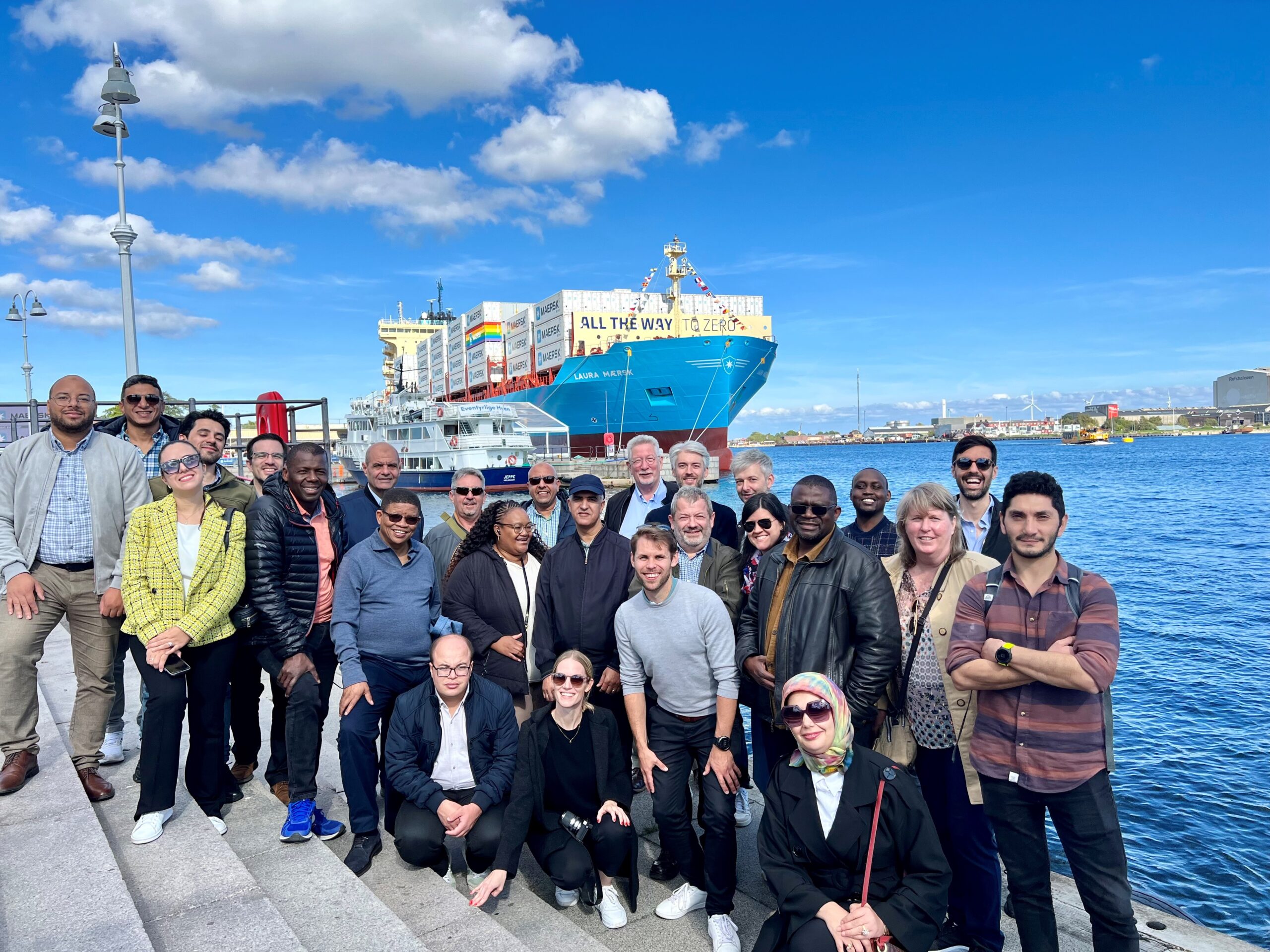The International PtX Hub brought together partners from seven countries in Africa, the Middle East, and South America for a study tour to Copenhagen, Denmark. The trip investigated practical solutions and facilitated collaboration and peer exchange among the 30 participants. It was a diverse, international group – experts from administrations, ministries, regional governments, port authorities, and academia from South Africa, Kenya, Morocco, Argentina, Chile, Uruguay, and Egypt.
Over the course of three days, the group met key stakeholders in Copenhagen’s maritime and energy sectors to acquire insights into the most current and promising opportunities to defossilise maritime transport.
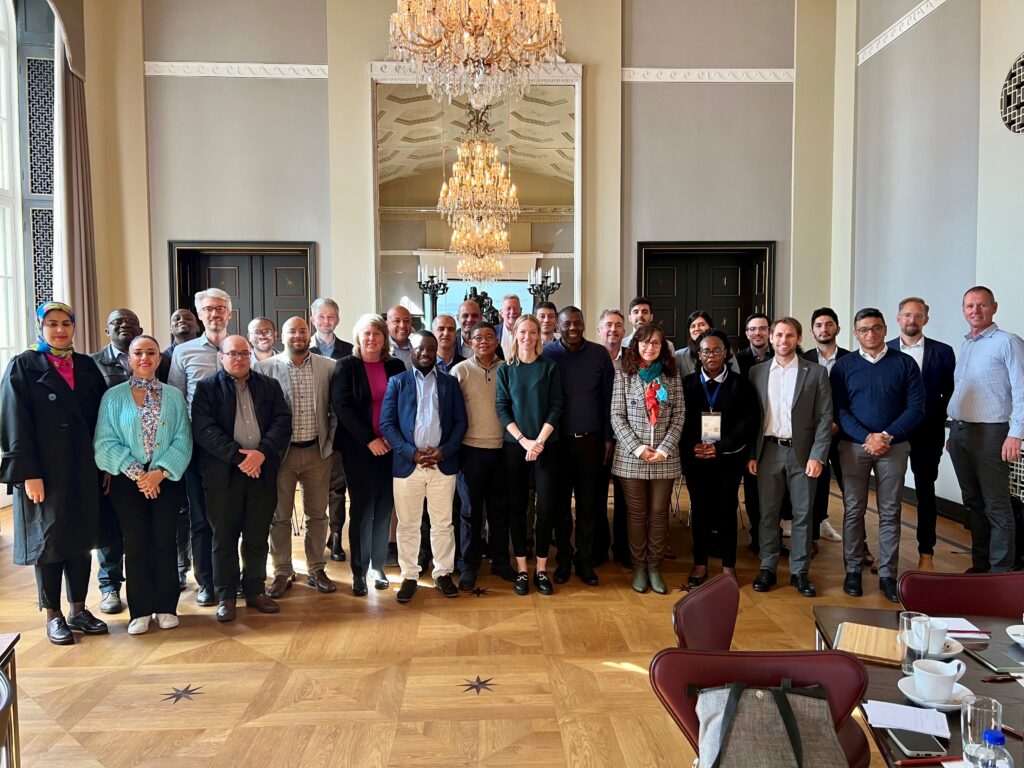
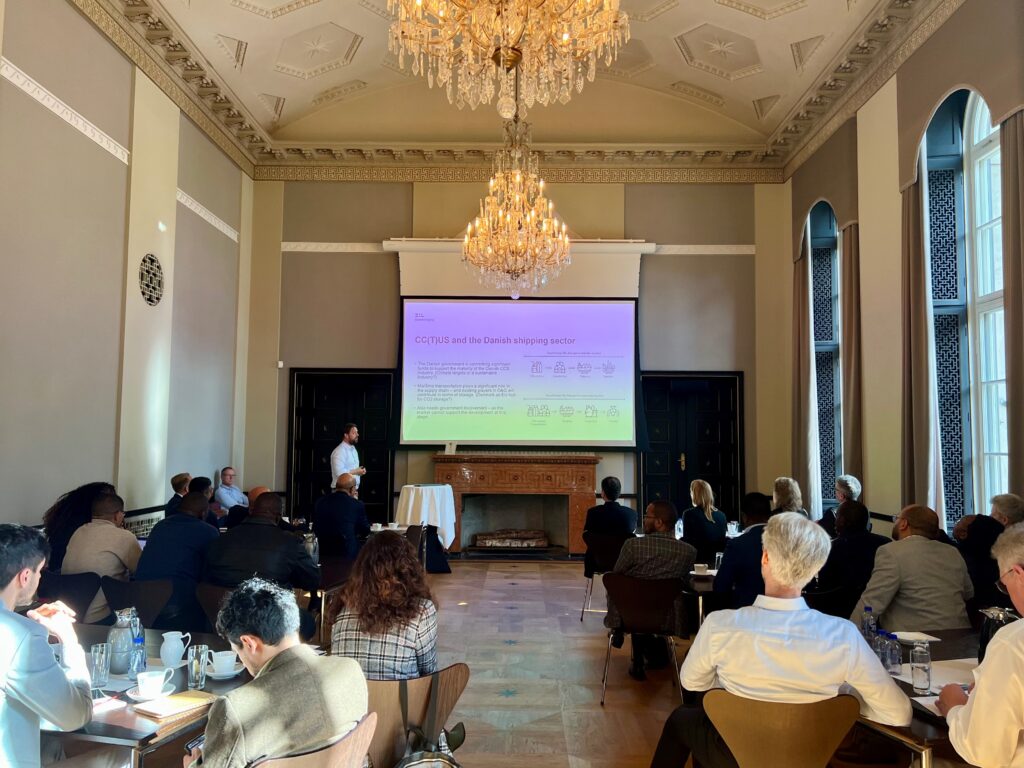
At Danish Shipping’s premises, the group learned how the association promotes green shipping.
The tour set sail with a visit to Danish Shipping and the Danish Maritime Authority (DMA). Olsen Hesselager, Head of Climate at Danish Shipping, and Andreas Nøhr Vestergaard, Chief Advisor at the Danish Maritime Authority and Mission Director of the “Zero Emission Shipping Mission” warmly welcomed the group. As maritime transportation will be integrated into the European Emission Trading System next year, the exchange strongly emphasised the imperative to decarbonise shipping fleets operating in European territories. Discussions among participants further underscored the significance of collaborations to meet the growing demand for green shipping fuels, not only in the future but also already now and beyond Europe, regardless of whether solutions involve green methanol, ammonia, or other green options.
Moving on to the Danish Energy Agency (DEA), the group met with Ole Emmik Sørensen, Director at Danish Energy Agency and his team. They shared insights into Denmark inspiring decarbonisation goals and ambitious renewables deployments. The DEA, under the Danish Ministry of Climate, Energy and Utilities (KEFM), monitors and develops energy and supply sectors in Denmark and with its Global Cooperation division, DEA implements energy cooperation projects in several countries with a focus on tackling carbon emissions through energy system transitions. To transform the energy system to operate with 100 % renewables, and serve the production of PtX products such as green shipping fuels at the same time, the DEA team explained Denmark’s ambitions in offshore-wind and required interlinkages with its European neighbours.
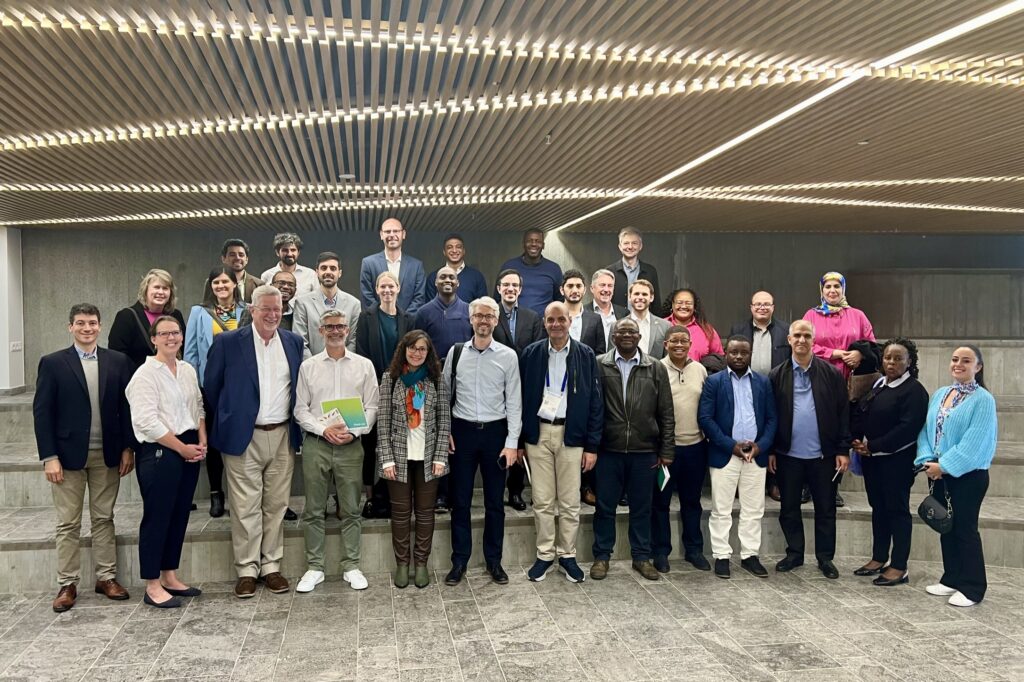
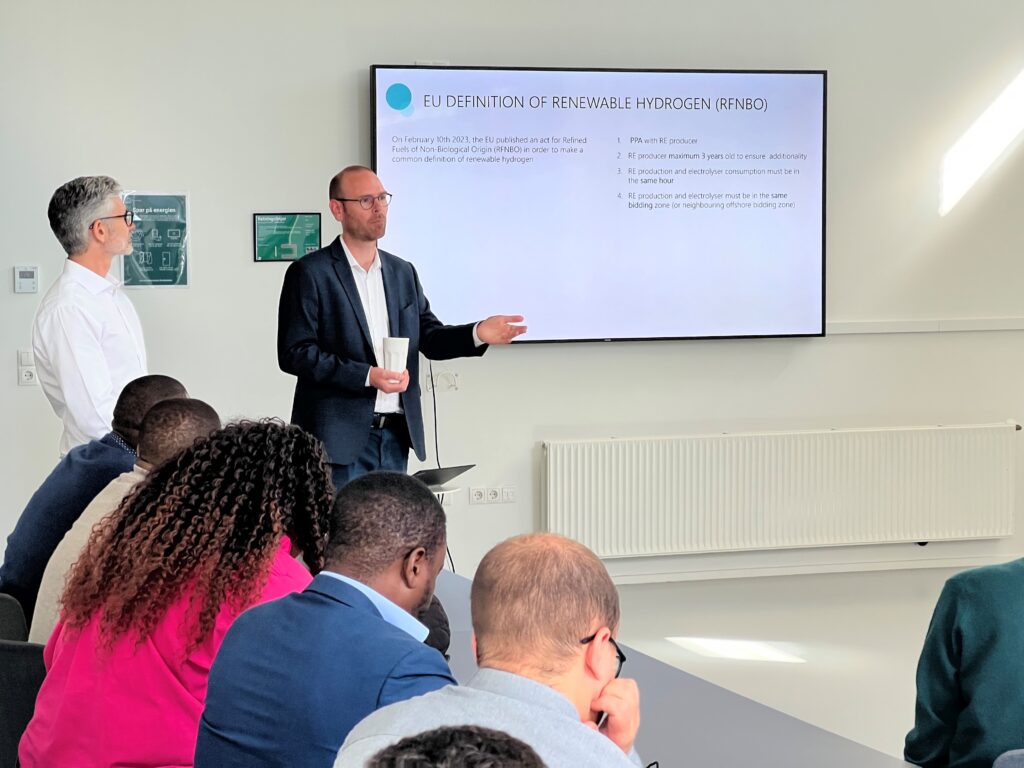
Ole Emmik Sørensen, Director at Danish Energy Agency and his team presented Denmark’s Power-to-X strategy.
Decarbonising shipping is no longer an abstract and distant goal
With the first international corporations announcing their commitment to transforming their entire value chain to become climate-neutral by 2030, a concrete demand was created – demand that must now be met by the shipping sector through concrete solutions to transport these goods climate neutral. These solutions, particularly climate-neutral fuels, are expected to be diverse. Green methanol is ready for use, but ammonia also holds enormous potential. The group had the opportunity to witness these options first hand, and it became clear that there is an imminent need to supply these fuels from all over the world and along shipping routes worldwide.
MAN Energy Solution is a global engineering and technology company that provides solutions for power generation, marine propulsion, and industrial applications. Currently, MAN engines drive approximately half of the global freight, giving the company significant reach, potential, and responsibility to contribute to decarbonising vessels worldwide. In the shipping sector, MAN´s impact potential could address 2% of global emissions.
Copenhagen is home to the MAN Research Centre Copenhagen (RCC) where two full size engines allow testing of new engine types, parts, and future fuel systems such as ammonia. Warmly welcomed by Senior Vice President Bjarne Foldager and Promotion Manager Hrishikesh Chatterjee, the group received hands-on insights into the heart of green shipping: a newly developed and recently successfully tested two-stroke ammonia engine that is set to be installed on commercial vessels starting in 2026. MAN ES expects the demand for ammonia from large merchant marine shipping to reach 22 million tons by 2030, with a rapid increase to 345 million tons by 2050.
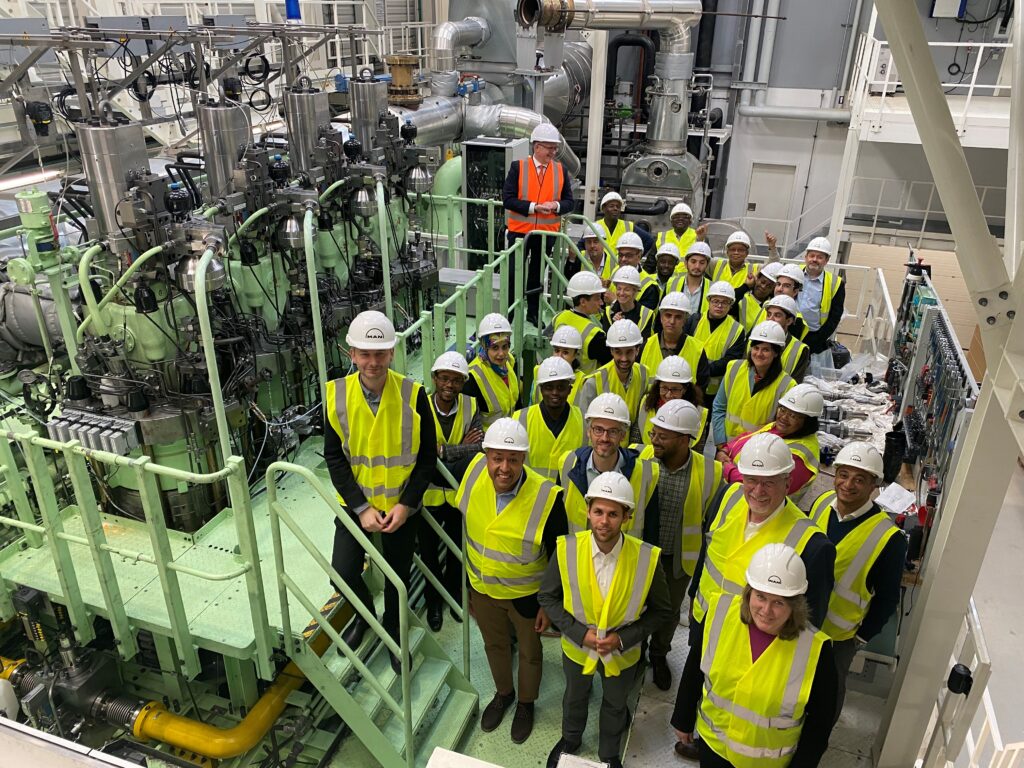
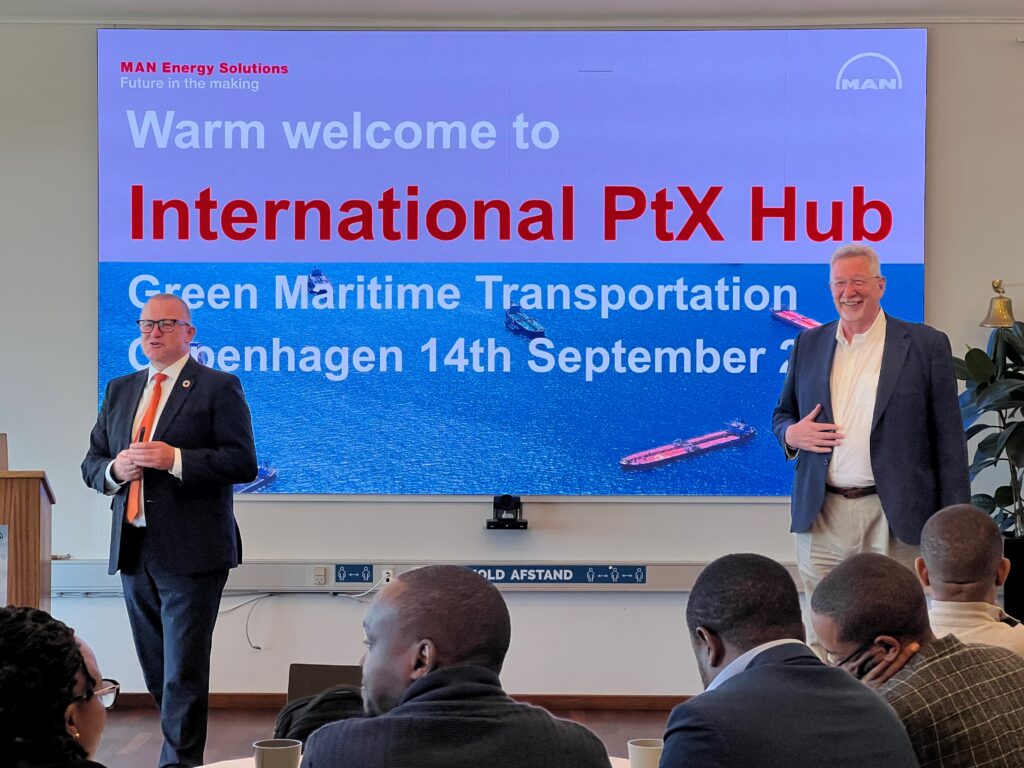
MAN Energy Solutions welcomed the group at their Copenhagen Research Center.
For the evening, the Global Maritime Forum (GMF) invited the group to a dinner reception. GMF is an international not-for-profit organisation committed to shaping the future of global seaborne trade to enhance sustainable, long-term economic development and human well-being. Some noteworthy initiatives of GMF include the “Getting to Zero Coalition,” an industry-led platform for collaboration on shipping decarbonisation, and the “All Aboard Alliance,” an effort aimed at enhancing diversity, equity, and inclusion of people at sea and onshore. The reception brought together key stakeholders from the Danish shipping industry and facilitated engaging discussions about the most exciting developments currently occurring in the shipping industry, some of which the group would participate in the following day:
The inauguration of the world’s first green methanol container vessel by the Danish shipping company Maersk. Before embarking on the new ship, the group took a journey aboard a small fishing vessel to visit the Middelgrunden Offshore Wind Farm. Located just off the coast of Copenhagen, this project stands as a symbol of successfully mitigating resistance and doubts surrounding green technologies and concepts.
Built in 2000, the project was once the world’s largest offshore wind farm, including 20 turbines (2 MW each) with a total capacity of 40 MW. Board Member Hans Christian Soerensen shared his story of fostering acceptive for this once new technology. He was one of the pioneers who helped establish the Middelgrunden Wind Turbine Cooperative and forged a partnership with Copenhagen Energy, the local electric utility. Together, they delivered the turbine’s power directly to the city of Copenhagen, which then played the crucial role in fostering acceptance for this innovative technology.
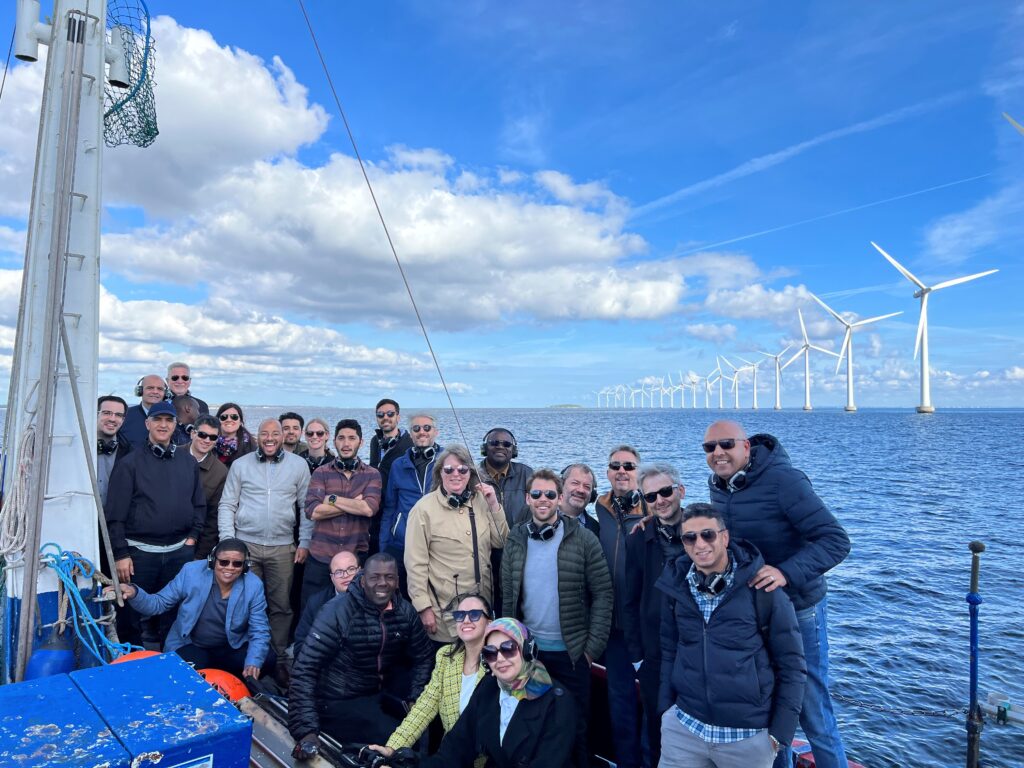
During a boat trip to the Middelgrunden Wind Turbine Cooperative, the delegates got to know the benefits of a ‘Bürgerenergie’ approach. 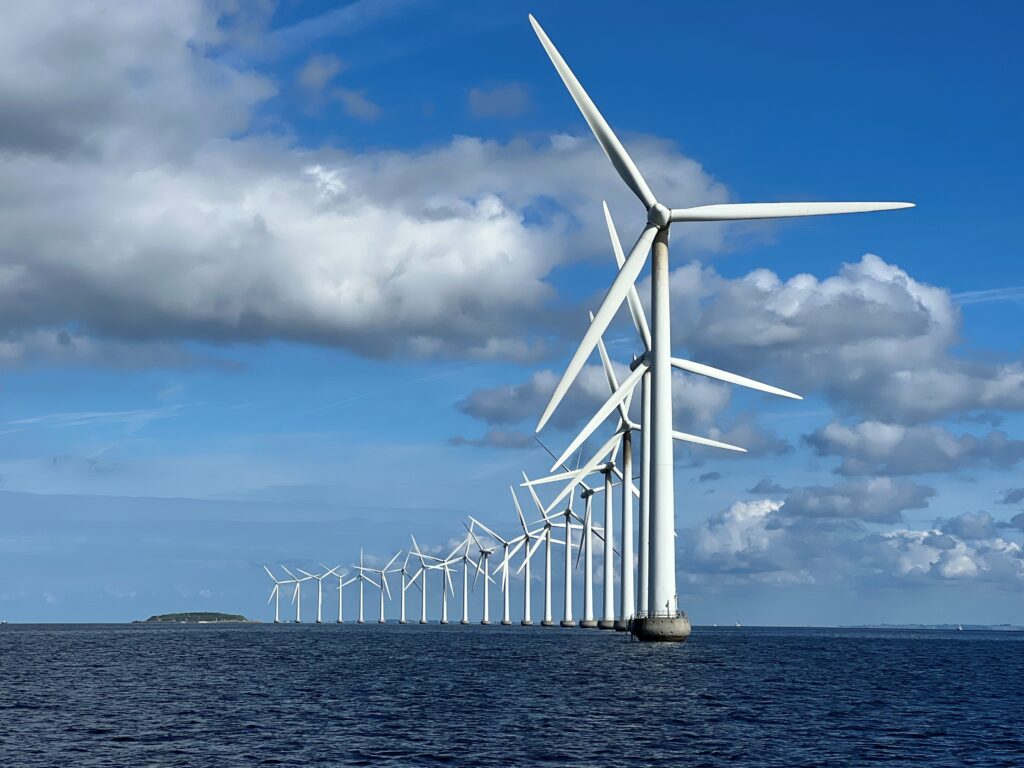
The trip ended with a highlight: the participants visited the Danish shipping company Maersk and joined the inauguration events of the world’s first container vessel powered by green methanol. The “Laura Maersk” had been christened just the day before by the ship’s godmother, EU Commission President Ursula von der Leyen. The group received a warm welcome from Concepcion Boo Arias, Director of Global Partnerships, Public & Regulatory Affairs at Maersk, and met and exchanged with the ship crew.
After presentations and discussions about possible pathways to decarbonise shipping, and after pondering over the age-old chicken-egg dilemma of green shipping – ship or fuel first, it was a great honour for the group to participate in such a lighthouse event. We would like to express our profound gratitude to everyone involved for making this tour an unforgettable journey!
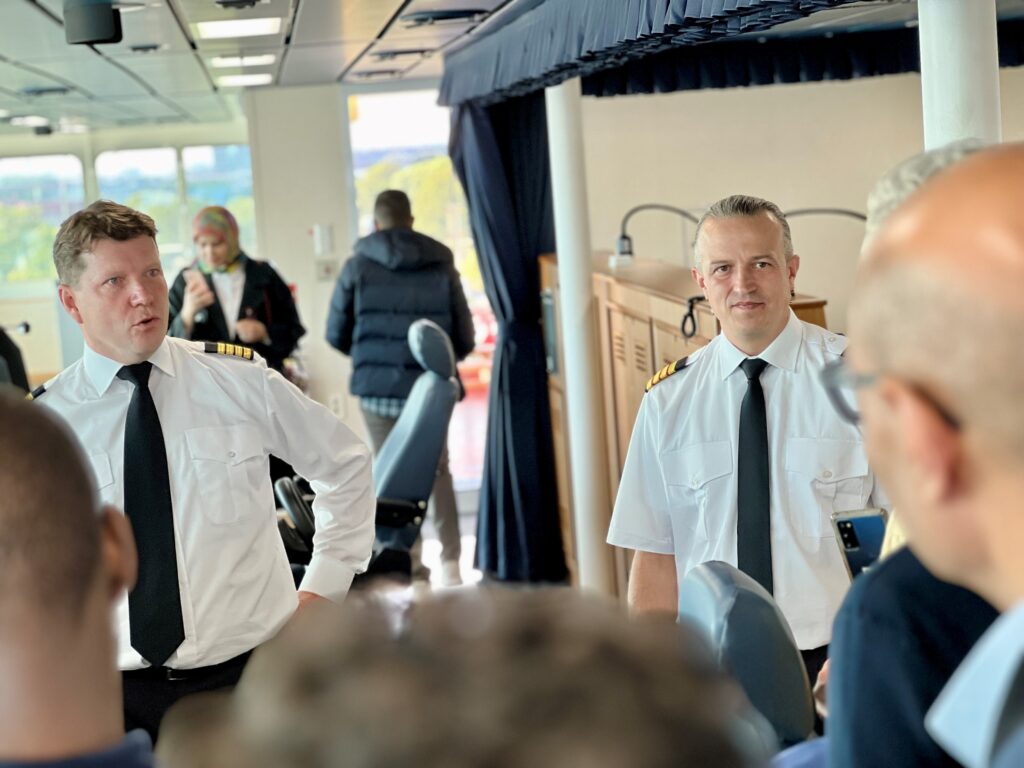
The crew of the new green methanol-powered container vessel “Laura Maersk” showed the group around. 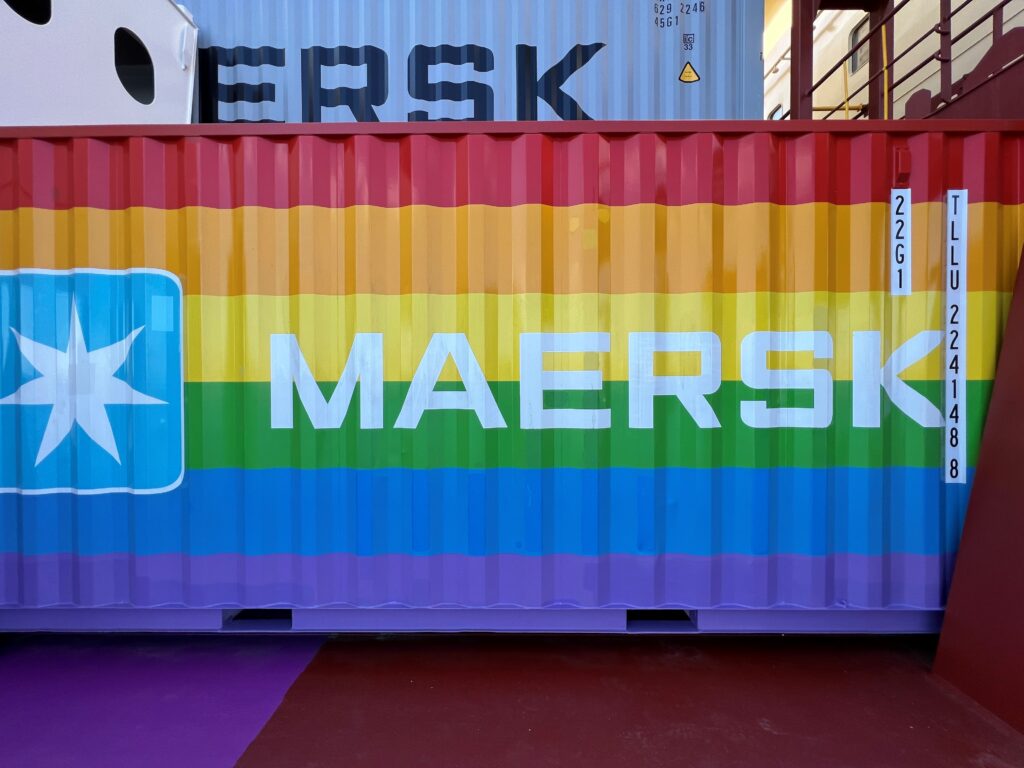
All photos by Johannes Arndt / GIZ.
